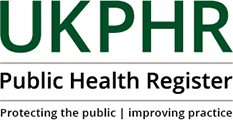Palliative and end-of-life care
“Palliative care” refers to the care of people who have an incurable and progressive illness.
Whether it is the replacement of the so-called Liverpool Care Pathway or the passionate campaigning for and against doctor-assisted dying, end-of-life care in the UK is rarely out of the headlines.
Debate around the appropriate roles of doctors, nurses and other carers towards the end of patients’ lives will inevitably turn to the issue of palliative care and its availability and quality.
The debaters might be assisted by the knowledge, according to a recent Economist Intelligence Unit report, that the UK is ranked as the best in the world for the quality and availability of palliative and end-of-care services.
The study of 80 countries said thanks to the NHS and hospice movement the care provided was “second to none”.
While rich nations tended to perform the best – with Australia and New Zealand ranked second and third respectively – the report praised progress made in some of the poorest countries. For example, Uganda (35th) has managed to improve access to pain control through care provision in people’s homes and communities.
There were over half a million deaths in the UK in 2013 and four out of every five were people aged over 65 years. Heart disease, lung cancer, and dementia were among the leading causes of death. Annual numbers of deaths are predicted to increase by 17 per cent by 2030. As we continue to live longer and longer lives, we can expect more of us to be living with long-term conditions, disabilities and ill-health at the end of life.
So how best to provide cost-effective care to enable people to live and die in the place and the manner of their choosing?
Palliative care is provided on a needs-basis and can begin at any stage of an illness. And UK Governments are committed to ensuring that people can receive care in the setting of their choice. The majority of people in the UK report a preference to die at home or in a hospice, but currently the majority of deaths occur in hospitals. For the NHS at least, it seems something of a “no-brainer” to respect the wishes of patients and their carers given that to do so would reduce cost in an NHS hard pressed for funding.
Of course, a greater use of community and hospice services in turn throws funding pressure onto local authorities and the charitable and voluntary sector. Advance care planning has been shown to improve palliative care by helping patients to live and die in the place and the manner of their choosing. Advance care planning is a structured discussion between health and social care professionals with the dying person and their family and carers about their wishes, needs and preferences for future treatment and support.
The challenges faced by commissioners and providers in seeking to deliver good quality palliative care to all those who need it include overcoming a societal difficulty in talking openly about dying, identifying those people approaching the end of life, co-ordinating and monitoring the delivery of services, ensuring staff, patients and their carers are appropriately trained and – of course – funding.
What are the standards they should adhere to when addressing these challenges and making sure that services provide good quality of care and equitable access?
Palliative care pathways or frameworks are used to manage quality, co-ordinate services, and allow standard setting and monitoring of care processes. Until recently, the Liverpool Care Pathway for care in the final days of life was a widely used framework across the UK (excluding Wales). However, following media criticism, an independent panel chaired by Baroness Neuberger reviewed this pathway and recommended that it be replaced by an individual end of life care plan, supported by condition-specific good practice guidance.
Some experts expressed concern that losing a standardised quality assurance tool would leave staff without sufficient guidance and make it more difficult to monitor care.
In Scotland, the Living and Dying Well National Advisory Group recommended that the Liverpool Care Pathway should be phased out in Scotland by December 2014. The Scottish Government accepted the recommendation and issued interim guidance on caring for people in the last hours and days of life.
Northern Ireland announced that the Liverpool Care Pathway would be phased out by October 2014. The Government in Northern Ireland has outlined five principles to underpin quality care in the final days and hours of life, based on its 2010 palliative and end-of-life care strategy.
The Liverpool Care Pathway was not used in Wales. Care is guided by Integrated Care Priorities for the Last Days of Life. It seeks to ensure that the needs and wishes of patients and their families are the central focus of decision-making, in partnership with professionals caring for the patient. An audit report is published annually.
In England, the Leadership Alliance for the Care Of Dying People was formed to develop a response to the Neuberger report. It consulted patients, carers, the public and professionals on a set of draft outcomes and guiding principles for high quality care in the last days of life.
In June 2014, the Alliance published “One Chance to Get it Right”, an approach focusing on the individual needs and wishes of dying persons and those closest to them in the planning and delivery of care. It centres around five priorities for care, which form a focus for care, as well as education and training, audit and research.
It will now be for professionals, service providers and commissioners to assess the value of these various approaches within the UK and implement them where they are judged the best way to overcome the challenges I have set out earlier, maintain quality of service and assure the public of equitable access to palliative and end-of-life care services.
by David Kidney



Comments are closed.